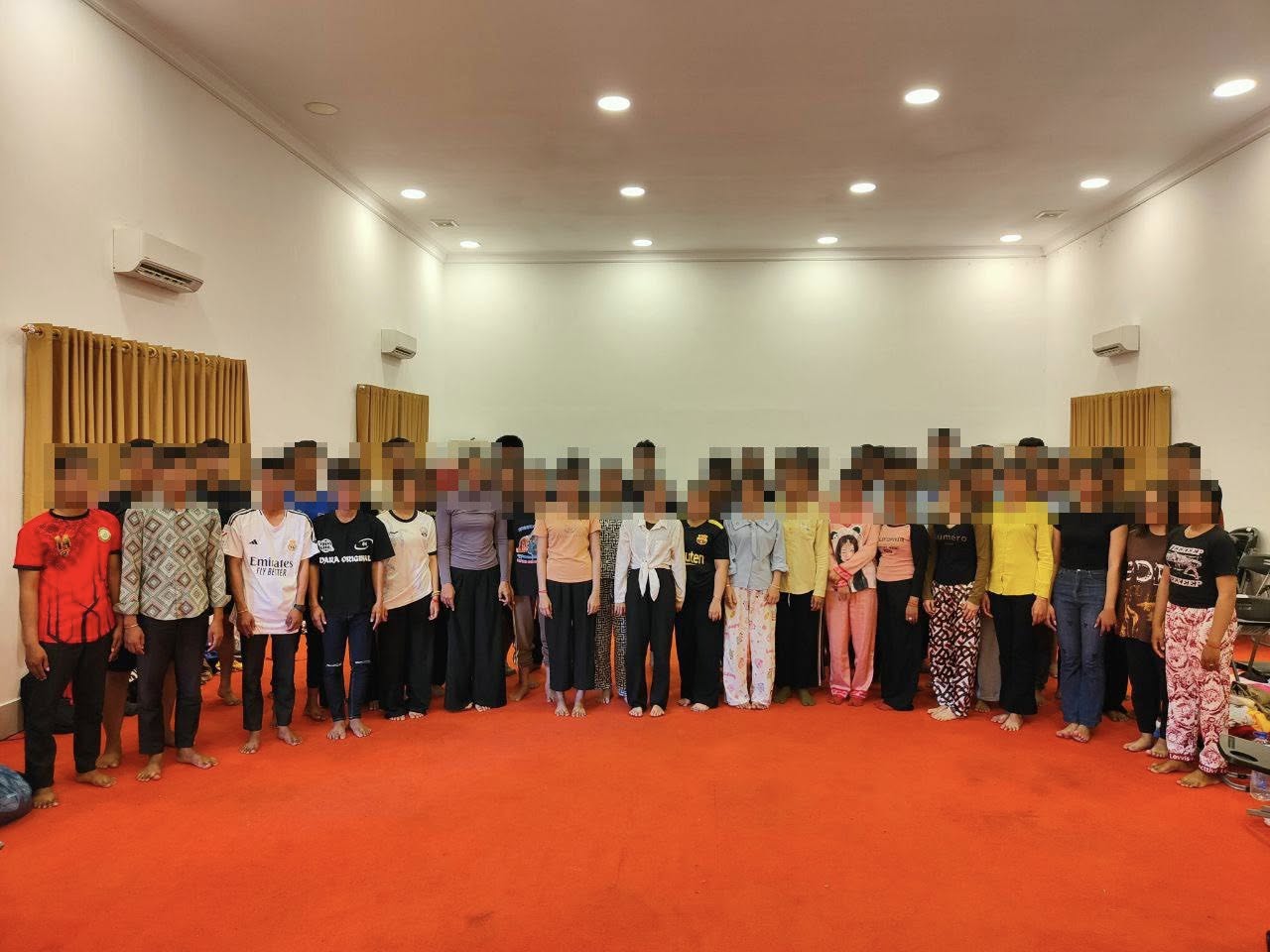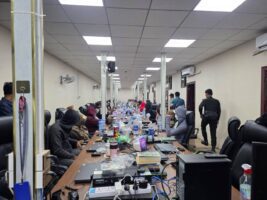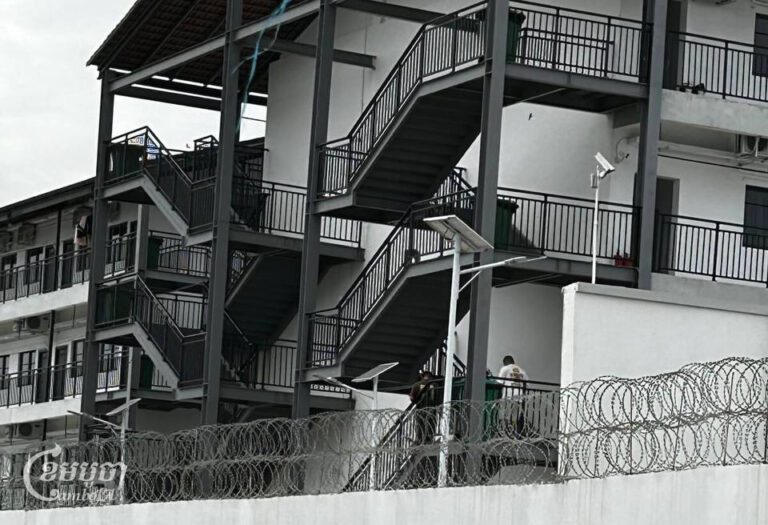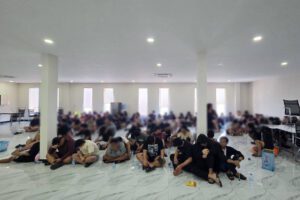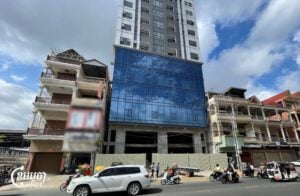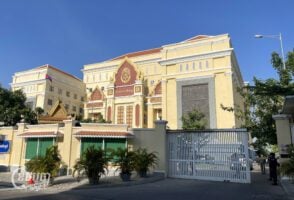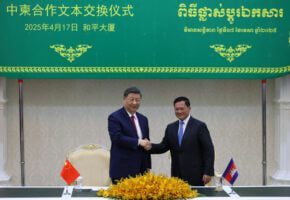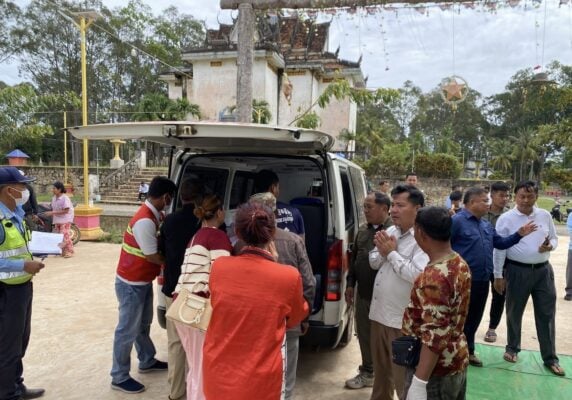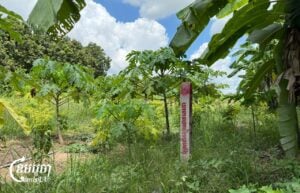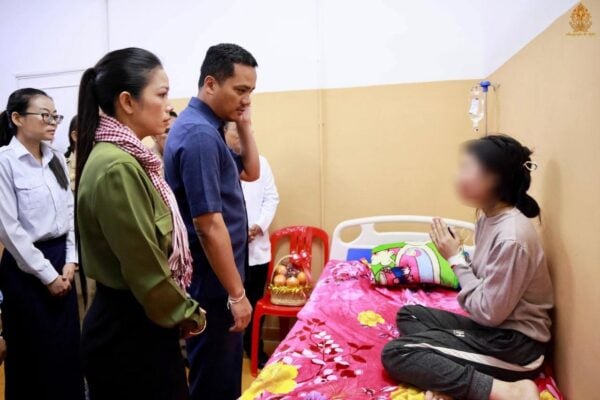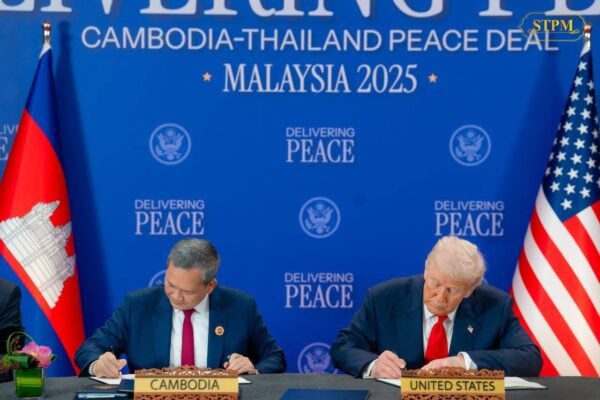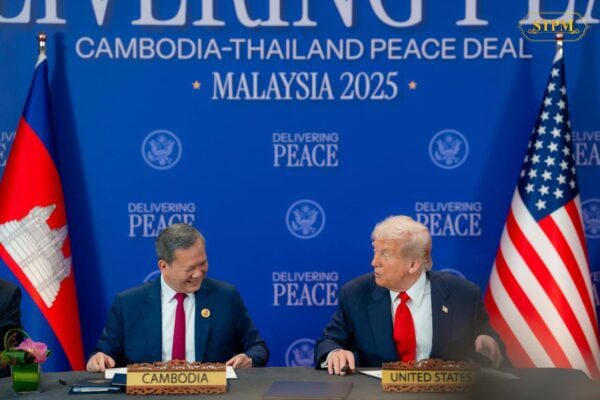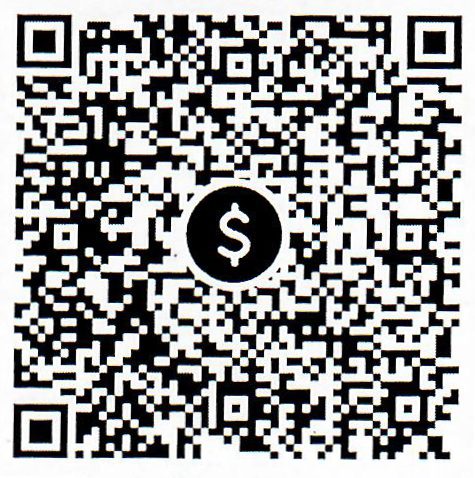Police in Prey Veng province have arrested 64 people, including 24 women, allegedly linked to illegal private lending activities which imposed interest rates of 80% to 85% on loans, which was described as a financial trap devastating low-income households.
According to Prey Veng provincial police chief Chhoeun Bunchhorn’s Facebook page, authorities investigated and cracked down on five illegal loan groups, which are unrelated, operating in several districts in the province and other provinces such as Kandal, Svay Rieng, and Phnom Penh.
Bunchhorn said the groups have branches and agents, which is complex, and total outstanding loans worth billions of riel. The loans have monthly interest rates of 10% to 15% but people also need to pay a fixed interest rate every day. Upon closer inspection, the interest rate is actually 80% to 85%.
The National Bank of Cambodia has previously instructed lending institutions to set the loan interest rate below 18 percent per annum.
Bunchhorn explained that the customer has to pay interest every day, with lenders charging the principal and fixed interest rate on the loan amount, but they do not deduct the interest from the amount paid back everyday.
“So, if we calculate correctly, the interest is about 80% of the initial loan amount for just one month. This is a travesty for people who are not financially literate and live in dire poverty,” Bunchhorn said.
In another post, Prey Veng police department said they have collected a “large amount of evidence” after two weeks of investigation, adding that the police have prepared the paperwork on the suspects, who are senior leaders in the five groups, and were sent to the Prey Veng Provincial Court to face punishment according to the law.
The employees of the operations, who were ordinary lending agents, received guidance from the police and will help with the investigation to find more illegal lending networks, the department said.
The provincial police chief said the five groups conducted illegal loan activities, including one which had a pawnbroking license but not a lending license. The rest of the groups did not have any valid license as required by the law.
Char village resident, Saran, from Prey Romdeng commune in Mesang district, Prey Veng province, told CamboJA News on October 7 that she took out a one million riel loan from one of the private lenders to pay her children’s school fees and Pchum Ben festival expenses. However, she has paid off the loan after settling it on a weekly basis.
According to Saran, many people in her village have taken private loans as they owe banks.
“We all know that the loan has high interest, and it is clearly illegal, but what can we do if we need money at the time? But I have paid it all back now. If they crack down on it [the operations], I will be happy because if there are more lenders [like these] more people will fall for it,” said Saran.
Sharing a screenshot of a text message between a lender and a customer, Bunchhorn said the loan amount is $1,000, but the borrower will receive only $520 because loan charges include a service fee of $150 and interest fee of $275. “Therefore, the daily interest rate is $55 of the principal of $1,000. In case the interest is paid late, a fine of $30 per day will be imposed.”
Plang Hak, head of Char village, said in 2023-2024, 30 to 40 families borrowed money from private lenders because they had no choice. However, the number must have dropped now, he added.
“Most of the people who offer these loans are from Svay Rieng and Poipet. They advertise [here]. In the past, I used to advise them [borrowers] because I saw them paying the interest every day and every week which was miserable. Some people even secretly take loans [without my knowledge],” Hak said.
Anti-Terrorism and Transnational Crimes Department deputy director Thou Saroeun said officials will continue to investigate illegal private loan syndicates in other cities and provinces to prevent citizens from falling into a serious debt crisis.
“We won’t stop at this point and will continue to combat illegal loan activities. We will arrest the mastermind behind this syndicate,” said Saroeun.
According to the Credit Bureau of Cambodia (CBC), more than five million people borrowed nearly $60 million from financial institutions in 2024. Most of the loans were approved in Phnom Penh, Kandal, and Siem Reap, making up 60% of the total loan balance.
On June 30, 2025, a research by Korea International Corporation showed that two Korean-owned microfinance institutions in Cambodia gave “exploitative” loans to Cambodians, resulting in serious human rights violations.
Kaing Tongngy, spokesperson for the Cambodia Microfinance Association (CMA), raised concerns about illegal private loans as they result in big losses to citizens, welcoming the crackdown on illegal lenders.
Informal loans have high interest rates and they do not observe ethics or uphold principles to safeguard people in their operations, instead resorting to threats, defamation, and the use of violence, he said.
But citizens should also understand and think carefully before deciding to borrow from an unlicensed institution.
“Sometimes, people lack understanding and borrow money quickly, although the interest is high and can result in problems, such as violence, threats, and requiring people to put up collateral, which is an issue that citizens do not care about. What we hear from the ground is that some interest rates range between 10% and 40% per month,” said Tongngy.
Given the global economic slowdown in 2024 and 2025, the banking sector’s lending rate is “not very high” now, around four to five percent per year, but the savings rate is “quite good” at around 14%, he added.
Separately, Human Rights Watch (HRW) released a research report on September 24, 2025 on microfinance loans posing risks to indigenous peoples in Ratanakiri province. According to the HRW report, difficulties paying back loans have led to forced land sales, debt overhang, and violations of cultural and social rights, and in some cases, debt-related suicides.
Meanwhile, Licadho operations director Am Sam Ath said that the crackdown on illegal and private loans by the Prey Veng authorities was a good move in order to prevent more citizens from facing debt overhang that can lead to loss of property by way of land confiscation.
Authorities in other provinces and cities should also start addressing this problem by following in the footsteps of Prey Veng police and local authorities by having a strict mechanism to monitor and educate more citizens.
“By law, loans cannot exceed 18% per year, but private loans have interest rates that are significantly higher than the legal limit, which can cause people to lose their land and house, and [eventually] migrate. The reason people rent houses is so that they can borrow from other banks to repay [other loans] or use for their family [expenses],” said Sam Ath.

